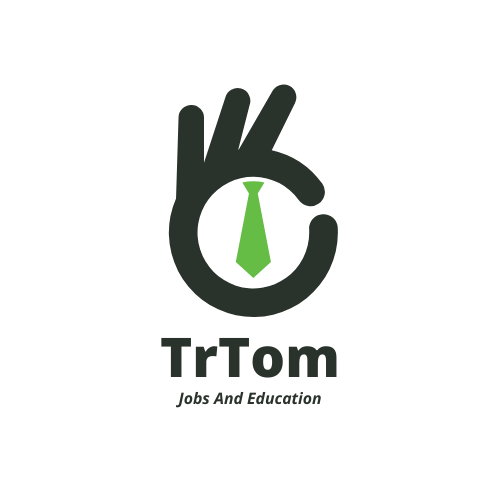Understanding Engineering Scholarships in Canada
Overview of Engineering Scholarships
Engineering scholarships in Canada are designed to support aspiring engineers by offsetting the costs associated with their education. These financial aids can range from government-funded programs to offerings provided by universities and professional organizations, such as Engineers Canada.
- Types of Scholarships:
- Undergraduate Scholarships: Typically aimed at students enrolled in Canadian Engineering Accreditation Board (CEAB)-accredited programs.
- Graduate Scholarships: Meant for individuals pursuing further studies or research in engineering fields.
For instance, Engineers Canada offers scholarships valued at $4,000 for undergraduate students and up to $12,500 for graduate students, helping to ease the financial burden while they focus on their studies.
Benefits of Engineering Scholarships for International Students
International students considering engineering in Canada can greatly benefit from available scholarships. These financial aids not only alleviate tuition costs but also provide students with:
- Reduced Financial Stress: Scholarships can cover tuition fees, living expenses, and essential materials, allowing students to concentrate on their studies without worrying excessively about finances.
- Access to Renowned Institutions: Many scholarships are offered by esteemed universities, granting recipients opportunities to study at top-ranked engineering programs.
- Networking Opportunities: Scholarships often include access to special events, mentorship programs, and professional development, which can be critical for career prospects.
Personal stories abound of international students who have navigated their way to success thanks to engineering scholarships; they have not only completed their degrees but also built meaningful careers in Canada, contributing to the country’s innovation landscape. With determination and the right financial support, international students can achieve their academic goals in the engineering field.

Eligibility Criteria for Engineering Scholarships
Academic Requirements
To secure an engineering scholarship in Canada, candidates typically need to demonstrate strong academic performance. Most scholarships include specific academic criteria that applicants must meet. Key academic requirements include:
- GPA Standards: Many scholarships require a minimum GPA, often around 3.0 or higher, depending on the institution.
- Relevant Coursework: Prospective students should have completed relevant courses in mathematics and science, which are critical for engineering programs.
For example, the University of Toronto’s Lester B. Pearson International Scholarships targets high-achieving students. Applicants must showcase exceptional academic records alongside their leadership qualities.
Additional Eligibility Criteria
In addition to academic requirements, engineering scholarships may have further eligibility criteria that applicants must fulfill. These can include:
- Language Proficiency: International students must often prove their proficiency in English or French, as evidenced by standardized tests like TOEFL or IELTS.
- Leadership and Community Involvement: Many scholarships prioritize candidates who demonstrate leadership skills or community engagement. This is where candidates can highlight volunteer activities or leadership roles in extracurriculars.
- Field of Study Relevance: Some scholarships are specific to engineering disciplines; applicants should verify alignment between their studies and the scholarship focus.
For instance, the Vanier Canada Graduate Scholarships are aimed at doctoral students demonstrating not just academic excellence but also research potential and leadership, making them highly competitive.
By understanding and meeting these eligibility criteria, students can enhance their chances of securing financial support for their engineering education in Canada.
How to Find Engineering Scholarships in Canada
Researching Available Scholarships
Finding the right engineering scholarships in Canada can be a rewarding experience, but it requires thorough research. Start by leveraging official resources such as university websites and professional organizations.
- Engineers Canada: They offer three scholarships specifically for engineering students. Regularly check their website for updates on application windows and eligibility criteria.
- University Financial Aid Offices: These offices can provide insights into institutional scholarships tailored for students enrolled in different engineering programs.
For instance, the University of Toronto and McGill University both have robust scholarship offerings that are widely recognized.
Utilizing Scholarship Search Engines
In addition to specific university resources, scholarship search engines can simplify your search for engineering scholarships significantly. Websites like ScholarshipsCanada and Yconic allow you to filter scholarships based on your academic qualifications and interests.
- Features of Scholarship Search Engines:
- Personalized Matching: Input your information to find scholarships suited to your profile.
- Application Alerts: Many platforms send reminders for approaching deadlines, ensuring you never miss a chance.
Using these tools not only saves time but also ensures you discover numerous unique opportunities tailored to your engineering aspirations. By employing both direct research and online tools, students can maximize their chances of securing financial support for their studies in Canada.
You can also read on: Next-Level Leadership: No GMAT Required for MBA Programs in the Netherlands
Tips for Crafting a Strong Scholarship Application
Writing an Impressive Personal Statement
Your personal statement is a crucial element of your scholarship application. It’s your chance to showcase who you are beyond academics. Start by reflecting on your journey—what inspired you to pursue engineering? Incorporate your goals, experiences, and what you hope to achieve with the scholarship.
- Tips for success:
- Be Authentic: Share personal anecdotes that illustrate your passion for engineering.
- Stay Relevant: Keep your focus on experiences or challenges that relate to your field of study.
- Showcase Achievements: Highlight key accomplishments, whether academic or extracurricular, that demonstrate your leadership and commitment.
Taking time to refine your personal statement can set you apart from others. Remember, admission committees appreciate authenticity and passion.
Obtaining Strong Letters of Recommendation
Strong letters of recommendation can significantly bolster your scholarship application. These letters should come from individuals who know you well and can articulate your strengths.
- Choose Wisely: Select teachers, mentors, or employers who can speak specifically about your skills, achievements, and character.
- Provide Information: Share your resume and details about the scholarship with your recommenders; this can help them tailor their letters.
- Follow Up: Always thank them for their support afterward, as it shows professionalism and appreciation.
A well-crafted personal statement, paired with compelling recommendations, will strengthen your scholarship application and increase your chances of success. Taking these steps thoughtfully ensures that you make a strong impression on scholarship committees.

Navigating the Application Process for Engineering Scholarships
Application Deadlines and Requirements
Understanding the application deadlines is crucial in securing an engineering scholarship. Most scholarships in Canada operate on strict timelines, and missing these can mean losing out on significant financial support.
- Key Steps:
- Research Deadlines: Each scholarship has its own deadline, often falling between December and March. Bookmark these dates and set reminders.
- Compile Required Documents:Commonly required documents include:
- Academic transcripts
- Language proficiency tests (like IELTS or TOEFL)
- Personal statements or essays
- Letters of recommendation
For example, the University of Toronto’s Lester B. Pearson International Scholarship has an application deadline of January 16 each year, so planning ahead is essential.
Preparing for Interviews, if Required
Some scholarships may involve an interview process, giving you the opportunity to express your passion and commitment in person.
- Preparation Tips:
- Familiarize Yourself with Common Questions: Practice answers to typical questions about your academic background, career goals, and why you are a suitable candidate for the scholarship.
- Dress Professionally: Treat the interview as you would a job interview—first impressions matter.
- Be Yourself: While it is important to be professional, letting your personality shine through can help you connect with the interviewers.
Navigating the application process might seem daunting, but being well-prepared and organized can make all the difference. With attention to deadlines and a strong interview presence, candidates can significantly increase their chances of winning a scholarship in engineering.

Securing and Accepting an Engineering Scholarship
Comparing Scholarship Offers
Once you receive multiple scholarship offers, it’s important to take the time to compare them carefully. Each scholarship may come with different benefits or obligations, which can influence your decision.
- Factors to Consider:
- Financial Value: Look at the total amount awarded, including whether it covers tuition, books, and living expenses.
- Renewability: Ensure you understand the conditions for renewing the scholarship each year.
- Additional Benefits: Some scholarships offer mentorship programs, internships, or networking opportunities that can enhance your experience.
For instance, the University of British Columbia offers scholarships that are not only financially supportive but also grant access to exclusive mentorship programs, which can be invaluable for personal and professional development.
Accepting and Following Scholarship Terms and Conditions
Once you choose a scholarship, ensure you follow the acceptance procedures outlined by the institution. It’s crucial to read and understand the terms and conditions associated with your scholarship.
- Key Steps:
- Submit Acceptance Forms: Make sure all necessary forms are submitted by the deadlines indicated in your offer letter.
- Maintain Academic Performance: Many scholarships require you to uphold a certain GPA or participate in community service. Keep track of these expectations to avoid jeopardizing your funding.
- Stay Informed: Regularly check for any updates or changes to the scholarship’s requirements, as institutions may communicate important information throughout the academic year.
By carefully comparing offers and adhering to scholarship guidelines, students can navigate their education in Canada more effectively and make the most of the financial support received. This attention to detail can set the stage for a successful and enriching academic journey.
Maintaining Eligibility and Performance
Understanding Scholarship Renewal Criteria
Once you’ve secured an engineering scholarship, it’s essential to understand the renewal criteria to maintain your funding for subsequent years. Many scholarships require recipients to meet specific benchmarks.
- Common Renewal Criteria:
- GPA Requirements: Most scholarships mandate a minimum GPA (often around 3.0 or higher) to remain eligible.
- Enrollment Status: Maintaining a full-time student status is usually a must.
- Documentation: Regularly submitting required academic progress reports or updates can be necessary to demonstrate compliance.
For instance, the University of Calgary’s International Entrance Scholarship allows for renewal based on achieving a specific academic performance, emphasizing the importance of staying proactive in managing your grades.
Academic and Non-Academic Performance Expectations
It’s not just grades that matter; many scholarships have additional expectations that blends both academic and non-academic performance.
- Academic Expectations:
- Continuously demonstrate academic excellence as defined by the scholarship terms.
- Engage in relevant courses and research initiatives that enhance your learning and career trajectory.
- Non-Academic Expectations:
- Some scholarships encourage participation in extracurricular activities, community service, or leadership roles. This could include being involved in student organizations or volunteering.
- Attend scholarship-sponsored events or workshops that may help you grow both personally and professionally.
Keeping a balanced approach that encompasses both academic and extracurricular engagement not only solidifies your scholarship but also enriches your overall experience as a student in Canada. With dedication and hard work, maintaining scholarship eligibility can lead to significant academic success and opportunities for growth.
Additional Funding Sources for Engineering Students in Canada
Part-Time Work Opportunities
Engineering students in Canada can significantly ease their financial burden through part-time work opportunities. International students are allowed to work while studying, giving them the flexibility to gain valuable experience and earn money simultaneously.
- Key Benefits:
- Flexible Hours: Many universities employ students in various departments, allowing for a balance between study commitments and work.
- Skill Development: Part-time jobs related to engineering can provide practical experience, making students more competitive when entering the job market.
For instance, a friend studying engineering at the University of Alberta managed to work as a research assistant, which not only covered some living expenses but also enriched her academic knowledge.
You can also read on: Advance Your Career with an MA Education from Bangor University
External Funding Options
In addition to scholarships and part-time work, there are external funding options that students can explore to support their education.
- Crowdfunding Platforms: Websites like GoFundMe can be effective for students looking to gather funds from family, friends, and community members.
- Grants and Bursaries: Various organizations and foundations offer grants or bursaries for students pursuing engineering, specifically aimed at those demonstrating financial need or unique talents.
For example, organizations, such as the Canadian Engineering Memorial Foundation, provide scholarships tailored to women in engineering, promoting diversity and inclusion in the field.
By exploring these additional funding sources, engineering students can enhance their educational experience while effectively managing their finances in Canada. Combining scholarships with earnings from part-time employment and external funding can pave the way for a successful academic journey.

Success Stories and Testimonials: Insights from Engineering Scholarship Recipients
Inspirational Stories
The stories of engineering scholarship recipients often inspire future applicants to pursue their dreams in Canada. For example, Maria, an international student from Nigeria, overcame financial hardships through the Lester B. Pearson International Scholarship. This opportunity allowed her to study at the University of Toronto and fully immerse herself in her engineering studies.
- Maria’s Journey:
- Achieved excellent grades in secondary school.
- Demonstrated leadership by starting a local STEM club in her community.
- Credits the scholarship for providing not just financial support but also networking opportunities with peers and industry leaders.
Tips from Successful Scholarship Awardees
Learning from those who successfully secured scholarships can be invaluable. Here are their top tips:
- Start Early: Begin researching and applying for scholarships well before deadlines. This led John, a recipient of the University of Calgary scholarship, to submit a thoughtful application that stood out.
- Tailor Applications: Customize each application to align with specific scholarship criteria. Jane, a Vanier Canada Graduate Scholar, emphasizes the importance of highlighting relevant experiences.
- Seek Guidance: Connect with mentors or advisors who can offer insights and assistance during the application process.
The stories and insights from these scholars provide more than encouragement; they outline practical steps for aspiring students looking to make a mark in engineering. Leveraging these experiences can light the path toward achieving academic goals in Canada.
You can also read on: High-Paying Part-Time Opportunities for International Students in Germany
Conclusion and Final Thoughts
Recap of Key Points
As we wrap up our discussion on scholarships for international students in Canada, it’s clear that these opportunities can significantly ease the financial burden of pursuing higher education. Key takeaways include:
- Diversity of Scholarships: Numerous scholarships are available, covering undergraduate to postgraduate studies based on merit, need, or specific criteria.
- Application Process: Understanding the requirements and deadlines is crucial for successful applications.
- Additional Funding: Opportunities like part-time work and external funding sources can complement scholarship support.
Encouragement and Advice for Prospective Scholarship Applicants
For aspiring scholarship applicants, remember that persistence is key. Many successful students faced numerous rejections before securing their funding.
- Stay Resilient: Don’t be discouraged by setbacks; refine your applications based on feedback.
- Be Proactive: Start your search early and apply for multiple scholarships to increase your chances.
- Engage with Others: Connect with previous scholarship recipients for advice and insights.
With determination and a strategic approach, you can secure the funding needed to pursue your academic dreams in Canada. Your journey starts now—take the leap and explore the scholarship opportunities that await you!
You can also read on: Top Countries That Welcome MBA Graduates with Lucrative Work Visa Options

